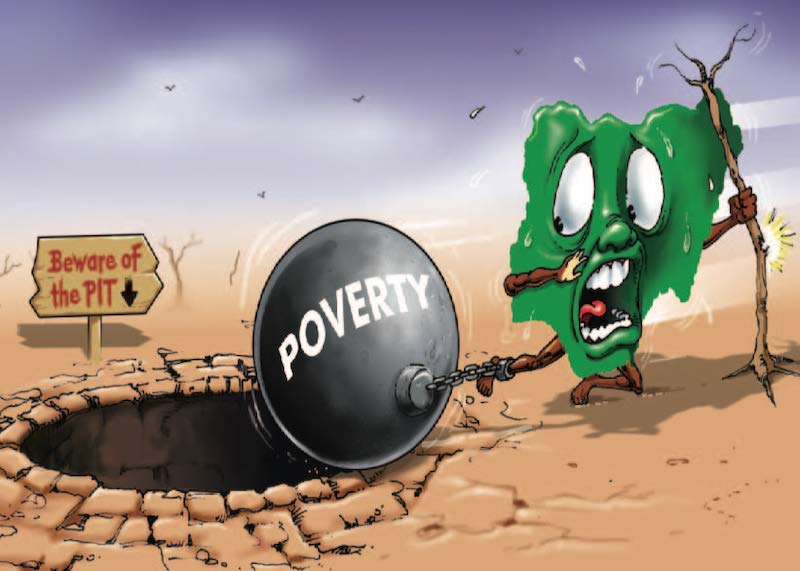
With Nigeria regarded as one of the countries where a high percentage of citizens live in extreme poverty, the 2022 International Day for the Eradication of Poverty serves as another reminder on the need to do more to alleviate the suffering of our people. Living in extreme poverty, going by the parameters set by the World Bank, means living on less than $1.90 (about N800) per day, an amount that cannot guarantee for any individual even the barest minimal needs for survival. “Today, many people living in persistent poverty experience their dignity being denied and disrespected. The ways in which the poorest people are treated are a measure of the respect in which human dignity is held in our societies,” said the United Nations.
A World Bank report ‘A Better Future for All Nigerians: Nigeria Poverty Assessment 2022’ released in March this year revealed that “as many as four in 10 Nigerians live below the national poverty line.” Besides, the majority of our people, “especially in the country’s north – also lack education and access to basic infrastructure, such as electricity, safe drinking water, and improved sanitation.” Although the report blames the problem largely on climate change conflict which disproportionately affects the poor and the aftereffects of Covid-19 pandemic, it also states that the response of government at all levels has been grossly inadequate. “Households have adopted dangerous coping strategies, including reducing education and scaling back food consumption, which could have negative long-run consequences for their human capital.”
When three years ago, President Muhammadu Buhari pledged to lift 100 million Nigerians out of poverty in 10 years, he highlighted some of the challenges. But other problems that are glossed over include a growing population amid declining financial resources, high incidence of unemployment, predominant production of primary goods over finished products, aging public infrastructure and opaque systems of governance. The high rate of out-of-school children and poor output in the education sector also contribute negatively to deepening this inequality as the nation churns out a crop of uncompetitive youth in a world driven by technology.
The challenge is even bigger. Many of the rural communities in the country today are not connected to the national grid and as such, do not have any electricity. Some do not have access to potable water supply and many lack critical infrastructure for storage and transportation of raw materials from their places of production to markets. In several parts of the country where farming is the main occupation, the incessant clashes with herdsmen have made the profession a serious hazard. Meanwhile, the current regime of subsidies that do not impact on the poor is unsustainable.
The federal government and authorities in the 36 states of the federation must wake up to the reality of not only the growing gap between the rich and poor of our society but also the seeming hopelessness for a vast majority of our people in a nation blessed with enormous natural and human resources, but which has consistently been held down by poor governance at virtually all levels. There is also a role for citizens. We must begin to demand equity, fairness and accountability lest this deepening cycle of poverty continues. Until we begin to do all these, Nigerians will find it increasingly difficult to maximise their potential in the bid to enjoy better lives.
If we examine countries where real measurable poverty reduction has taken place as a result of conscious government policy and action, there was focus on the people, their safety and welfare as well as in the optimal allocation of scarce resources. For Nigeria to lift its people out of the current misery, authorities at all levels must go in the same direction.
Credit:- THISDAY





![NAFDAC seals warehouse with expired products in Benue [PHOTOS]](https://naijatipsland.com/wp-content/uploads/2024/11/NAFDAC-seals-warehouse-with-expired-products-in-Benue-PHOTOS-100x133.jpg)




